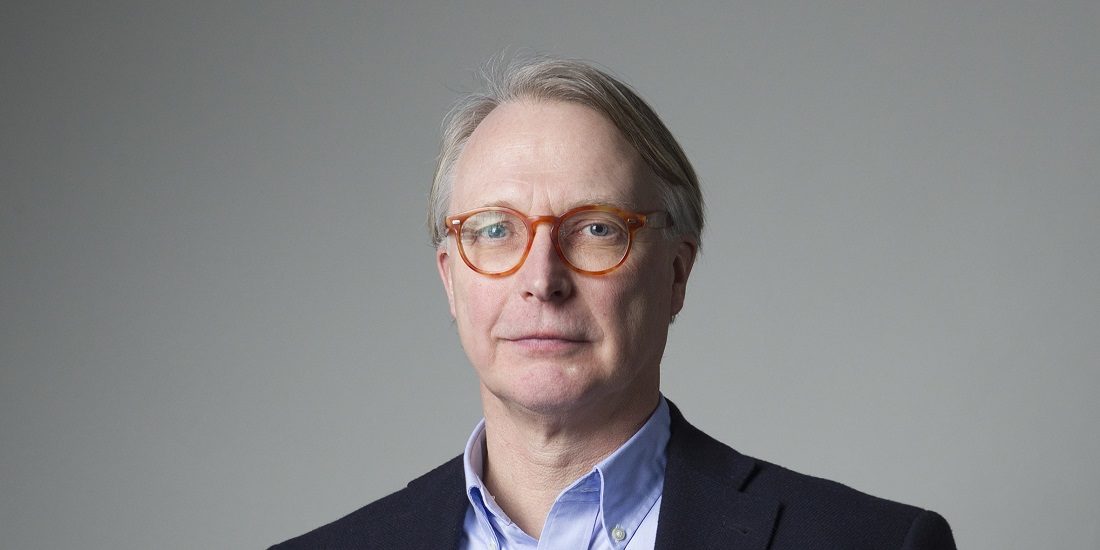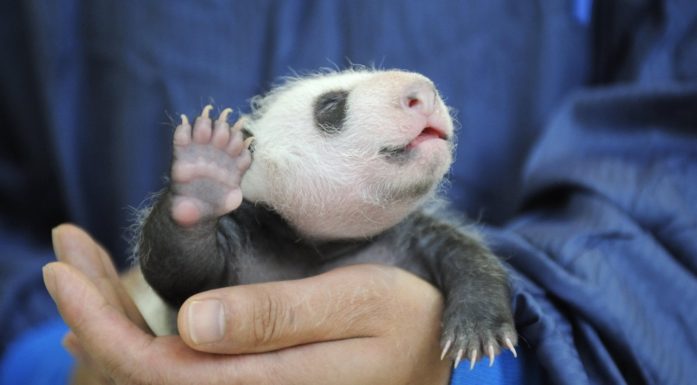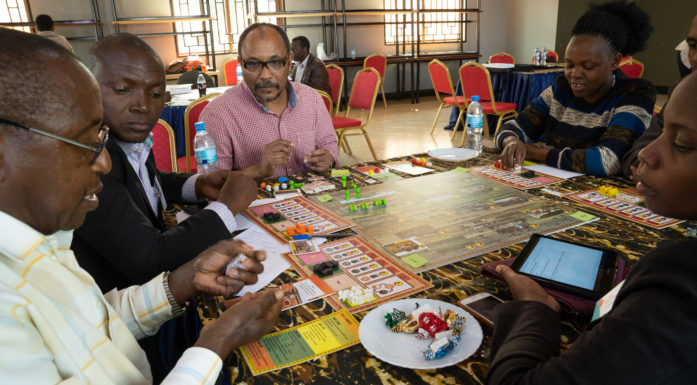Gunnerus Sustainability Award goes to pioneering researcher
Carl Folke, a groundbreaking researcher in his field, has been awarded the Gunnerus Sustainability Science Award for 2017.
Gunnerus Sustainability Award: Sustainability is a much-used term these days, and a lot of people understand what it means without thinking about it. Simply put, sustainability refers to how humanity can live in tune with our planet so it remains just as good a place to live for following generations as it has been for us.
Professor Carl Folke
- Professor Carl Folke pioneered research in sustainability, with a focus on human-environment relationships and human beings as parts of the biosphere.
- Professor Folke is the science director of the Stockholm Resilience Centre, which he also cofounded. In addition, he is the director of the world-leading Beijer Institute of Ecological Economics. Folke is a member of the prestigious Royal Swedish Academy of Sciences, which promotes interdisciplinary research and development.
- Professor Folke is among the world's most cited researchers with an h-index of 120 in Google Scholar Citations and 71 in Web of Science.
Sustainability research, however, was not common until a few decades ago. Leading figures in the field have been vital in broadening the understanding and reach of sustainability research. Carl Folke is one such figure, and today he is among the world’s most cited scientists.
Over the years, Folke has studied relationships in nature, and how these relationships affect life on Earth, including human beings.
Today, Folke is the science director at the Stockholm Resilience Centre, which he also cofounded. He heads the Beijer Institute of Ecological Economics, which brings together some of the world’s foremost researchers in the field.
Interconnected systems
Professor Folke believes that shining a light on the subject has been one of the most important things he and his colleagues have achieved.
“We’ve managed to show that the environment and development, human beings and nature, are completely intertwined, what we refer to as social-ecological systems, and that societal development is fundamentally dependent on a resilient biosphere. We’ve shown that human beings have become a global force that is shaping the future of the planet, and that we live in complex adaptive systems where unpredictability and uncertainty are becoming more the rule than the exception,” he says.
The Award
- The international Gunnerus Sustainability Science Award was established by the Royal Norwegian Society of Sciences and Letters (DKNVS) and the Norwegian University of Science and Technology (NTNU).
- The award honours outstanding scientific work for sustainable development globally, and aims to promote research and strengthen the scientific basis of sustainability.
- The prize is NOK 1 000 000, plus a gold medal and diploma.
The idea that human beings have such a huge impact on our planet is sinking in for many people. And leading promoters like Folke are a big reason for the growing awareness.
Folke has influenced research, education, policies and practices, and more recently, also business – on an international scale. This gives him hope.
“I believe we have contributed internationally by creating space for the next generation of researchers, so that they can address the challenges associated with sustainable development. We’ve created interdisciplinary platforms for constructive research collaboration on these vital issues,” he says.
Folke is a member of the Royal Swedish Academy of Sciences, which through its Beijer Institute is a meeting place for collaborative exchanges across disciplines.
The human age
Folke was at the forefront of sustainable science. As early as the 1980s, he conducted one of the first analyses of ecosystems, in which he measured and estimated the value of vital functions and services in a Swedish wetlands landscape, and the role of natural capital in enabling people to live well.
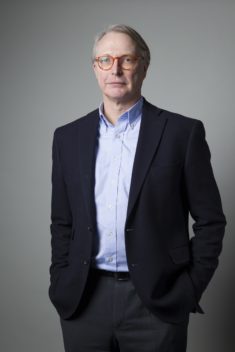
Professor Carl Folke has contributed to more than ten books and over 200 scientific dissertations. Photo: M. Axelsson/Azote for Stockholm Resilience Centre
Folke has continued his quest for knowledge ever since and has contributed to more than ten books and more than 200 scientific dissertations.
He plans to continue. “In the future, I want to increase and deepen my understanding of the new world we live in,” says Folke.
He refers to this new world as the “Anthropocene” or “human age”, an expression suggested by biologist Eugene F. Stoermer and later popularized by Nobel Laureate and atmospheric chemist Paul Crutzen.
Human influence on the environment is indisputable. But human beings are also dependent on finding ways to live and interact in balance with nature.
“We are looking to find ways that enable positive social development within planetary bondaries – ‘biosphere stewardship,’ as it were. Improving our ability to live with and continue to develop with ever changing circumstances, that is building resilience” says Folke.
A new way to see the Earth
He thinks the research that he has been such an important part of has influenced our shift towards a sustainable society.
“I hope and believe our research has contributed to the changes in approach that are increasingly appearing around the world, and which in turn have led to new policies and decisions,” says Folke.
Many more people see the role of humans in the dynamics of the planet much differently now than most people did just a few decades ago.
“It’s a kind of neo-renaissance, where people and society are growing increasingly aware that we are part of planet Earth and part of its thin biosphere. We can’t achieve sustainability without cooperating with the biosphere that humans are part of, and fundamentally dependent upon for their well-being and for successful societal development,” says Folke.
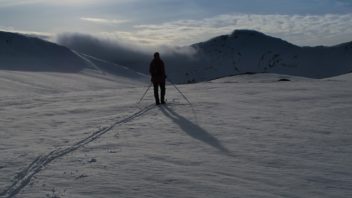
Many more people see the role of humans in the dynamics of the planet much differently now than most people did just a few decades ago. Photo: Per Harald Olsen, NTNU
The role of universities
Education is key. Perhaps universities should adapt their curricula to allot more space to understanding sustainability at the individual level?
“Absolutely! A kind of general sustainability science education that is the basis for the entire education,” Folke says. He believes challenges and opportunities associated with sustainability should be highlighted in basic education at all universities. “Today so much solid research clearly illustrates the situation, the challenges and the opportunities,” he said.
He says it is clear that society expects knowledge-producing universities to create increased understanding and insights that will lead to the development of a sustainable society in the future.
Significance of the Gunnerus Award
Carl Folke has been honoured several times already. But the greatest honour is perhaps that so many other researchers cite the research that he and his colleagues are doing.
So what does the Gunnerus Sustainability Award mean for their research?
“It is truly a great pleasure, joy and honour to be chosen as a recipient of the Gunnerus Award in 2017,” he says.
He believes the establishment of the Gunnerus Sustainability Award and its focus on sustainability science is enormously important in strengthening fragile interdisciplinary research communities around the world.
“This will mean a lot for our international research and training in sustainability science at Stockholm Resilience Centre and at the Beijer Institute. We are thrilled!” says Folke.
The award will be presented during NTNU’s sustainability conference on 19 October. Read more about the conference here. You can also register to attend the conference or the ceremony.
About the Gunnerus Prize: www.dknvs.no/gunnerusprisen
NTNU’s website with links and more information: https://www.ntnu.edu/gunnerus-award2017
